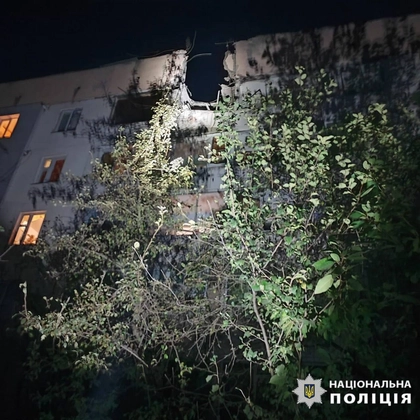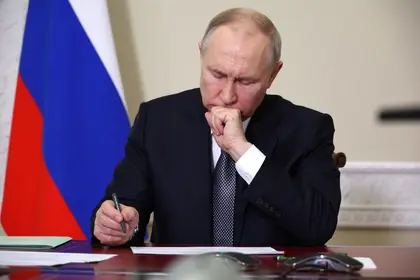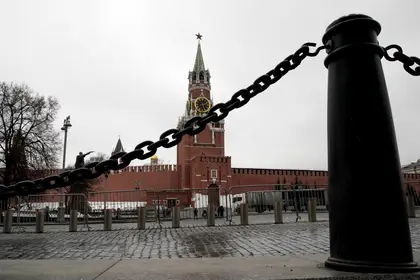Developments rapidly unfold as Ukraine prepares its counterattack. On April 20, U.S. Treasury Secretary Janet Yellen offered an olive branch deal to China: Help end the war in return for more trade and microchips.
JOIN US ON TELEGRAM
Follow our coverage of the war on the @Kyivpost_official.
Days later, Chinese leader Xi Jinping called Ukraine’s President Volodymyr Zelensky for the first time since the invasion and the two had a “long and meaningful” discussion about peace and “respect for sovereignty and territorial integrity”, according to both official statements.
Then American and Chinese officials agreed to hold “high level” talks, just as another Russian “ally”, South Africa, broke ranks by warning Vladimir Putin against attending its BRICS meeting this summer. That is because Pretoria has ratified the International Criminal Court and must arrest him for war crimes if he shows up.
Russia’s stature and alliances diminish daily and its military suffers setbacks, mutinies, massive casualties, and blistering criticism. Recently, a Russian fighter jet accidentally bombed one of its own cities, and this week two hostile drones penetrated Moscow air space and were blown up near the Kremlin. Russia blamed Ukraine, but some accuse Putin’s enemies. Clearly, the walls, and ranks, are finally closing in on Putin and his Evil Empire.
The world pivots away from Putin and his genocide. Diplomatic trade-offs and niceties are ignored as people worldwide continue to see Russia pulverize Ukraine and murder women and children. And Ukraine remains resolute and begins its counterattack: Two freight trains were derailed inside Russia within days disrupting supply lines to the warfront and a major ammo depot was blown up in Crimea.

Kyiv Hit by Massive Drone Attack as Russian Strikes Target Multiple Ukrainian Cities
In the past five months, Ukrainians have mowed down 100,000 Russians, forcing Russia to recruit and mobilize again. Fierce fighting has depleted Moscow’s ammunition supplies, resulting in mutinies by ordinary soldiers and a threat in recent days by Wagner Group leader, Yevgeny Prigozhin, to pull out his 50,000 mercenaries in protest.
“Russia is on the brink of catastrophe,” Prigozhin told a pro-war military blogger last week. He labeled Kremlin claims that the war was going according to plan as “BS”, and asked “what have we even done [since Feb. 24]? We’ve turned the Russian army – the second army in the world – into what? Who the hell knows. … What kind of army are we if we couldn’t even manage with itty bitty Ukraine? It’s a complete mess everywhere, there’s no discipline. The army has everything, but there is absolutely no control, while there is an absolute paranoid gap between that which is happening in the trenches, and that which they know and think about in headquarters.”
He said “nobody gives damn” among Russia’s military leaders and the result is that Wagner is left to recover “thousands and thousands” of dead fighters. He swore vengeance against “those who are responsible for the deaths of thousands of these Russian guys.”
On April 29, Prigozhin stated that Wagner needs about 80,000 shells per day, and is receiving a fraction of that, according to the Institute for the Study of War. Such shortages have also demoralized conscripted troops. Soldiers are upset about the failure to provide ammo or protective equipment. Some refuse to storm front lines because there is not sufficient artillery cover.
Russia’s “Stalinist” meat grinder strategy hasn’t worked well, but will eventually if enough soldiers are press-ganged to join and Ukraine runs out of ammo. But the Kremlin’s problem, however, is that replenishing manpower is a tough sell, given the soaring casket count. Recruitment efforts aren’t working. Young men flee or hide to evade the draft. And businesses are upset too.
Leaked Russian documents, obtained by The Washington Post, say there is concern because mobilization contributes to an existing, widespread labor shortage across the Russian economy. Even so, in mid-February, President Vladimir Putin “reportedly backed” a “quiet” recruitment of 400,000 more troops in 2023 for the war in Ukraine, according to data included in the recent Pentagon leaks.
Putin’s debacle has been costly in human terms. He invaded with 150,000 troops, conscripted 300,000 more in the fall, and pays at least 50,000 Wagner mercenaries. The CIA estimates that Russian casualties are between 189,500 and 223,000 (with 43,000 killed). This is why the military wants 400,000 more in 2023 and why reports allege that Putin also wants to hire an additional 415,000 mercenaries in 2023. This would create a gigantic armed force that would simply swamp Ukraine.
Despite such grandiose scheme, Putin may actually be seeing the writing on the wall. A new narrative is being pushed by the Kremlin and official spokesmen are being instructed that “if the [Russian] offensive is unsuccessful, say [Russia’s] army skillfully fended off an attack that was superior in power.” Further, they are told to say that losses were “understandable” because the enemy had “weapons from the U.S. and Europe” and that Russia battles the “entire West”.
Putin with his ragtag army cannot achieve his “maximalist” goal to recapture all of Ukraine, but has made gains. Before the invasion, Russia occupied 7 percent of Ukraine, hiked this up to 22 percent, but has lost 5 percent for a net total of 17 percent. Prigozhin and others argue that this alone constitutes victory and the fighting should stop. But Putin shows no signs of quitting.
This is why Ukrainians intend to regain all occupied land, but there is skepticism in the Pentagon as to whether Crimea can be recaptured. Ukrainians think otherwise. Russia’s military morass is worse than anyone imagined and Russia bombs civilians but cannot win on the battlefield.
In fact, Putin’s forces haven’t won a battle since July while Ukraine has clawed back 5 percent of its territory and is now poised and equipped to regain the rest. It has jet fighters, more than 1,500 tanks, armored vehicles, and nine well-trained brigades while 60 per cent of Putin’s air force has been destroyed, ammo is in short supply, and two-thirds of his fleet of tanks have been demolished or captured.
Crimea is critical to regain because in Russian hands it can block most of Ukraine’s trade and mount more attacks. Retired Lieutenant General Ben Hodges—former Commanding General of the U.S. Army Europe – explains that the peninsula needn’t be invaded immediately, but must be isolated. It is linked by a land bridge through southern Ukraine and by the Kerch Bridge, a highway and rail link that is 17 kilometers long. In October, Kerch was disabled by seaborne drones and is not scheduled to reopen until July. To win, both links must be blocked and then Crimea’s air base, naval base, and Russia’s Black Sea Fleet will be immobilized, bombed, and under siege.
Then, and only then, will Russians pivot from Putin. “If Russia lost Crimea, then officials could seek to remove him from power,” said Kurt Volker, former U.S. Ambassador to NATO and special representative for Ukraine. "I'm not suggesting they would kill him. I'm thinking they might say, 'Oh, he's got a new health crisis of some kind. He has to go to Sochi and recuperate’.”
The loss or impairment of Crimea will represent a defining defeat in Russia and will also result in the withdrawal of Russian troops from eastern Ukraine, speculated Hodges. This is because eastern Ukraine is worthless. It has been completely destroyed in the war and its only strategic value is as a land bridge to Crimea. Remove or control Crimea and the Donbas will be liberated and Putin will be gone. That’s the plan. As Zelensky has clearly said: “The war in Ukraine began with Crimea and must end with its liberation.”
Reprinted with the author’s permission from Diane Francis's Newsletter on America and the World30-day free trial at https://dianefrancis.substack.com/about
The views expressed in this opinion article are the author’s and not necessarily those of Kyiv Post.
You can also highlight the text and press Ctrl + Enter






